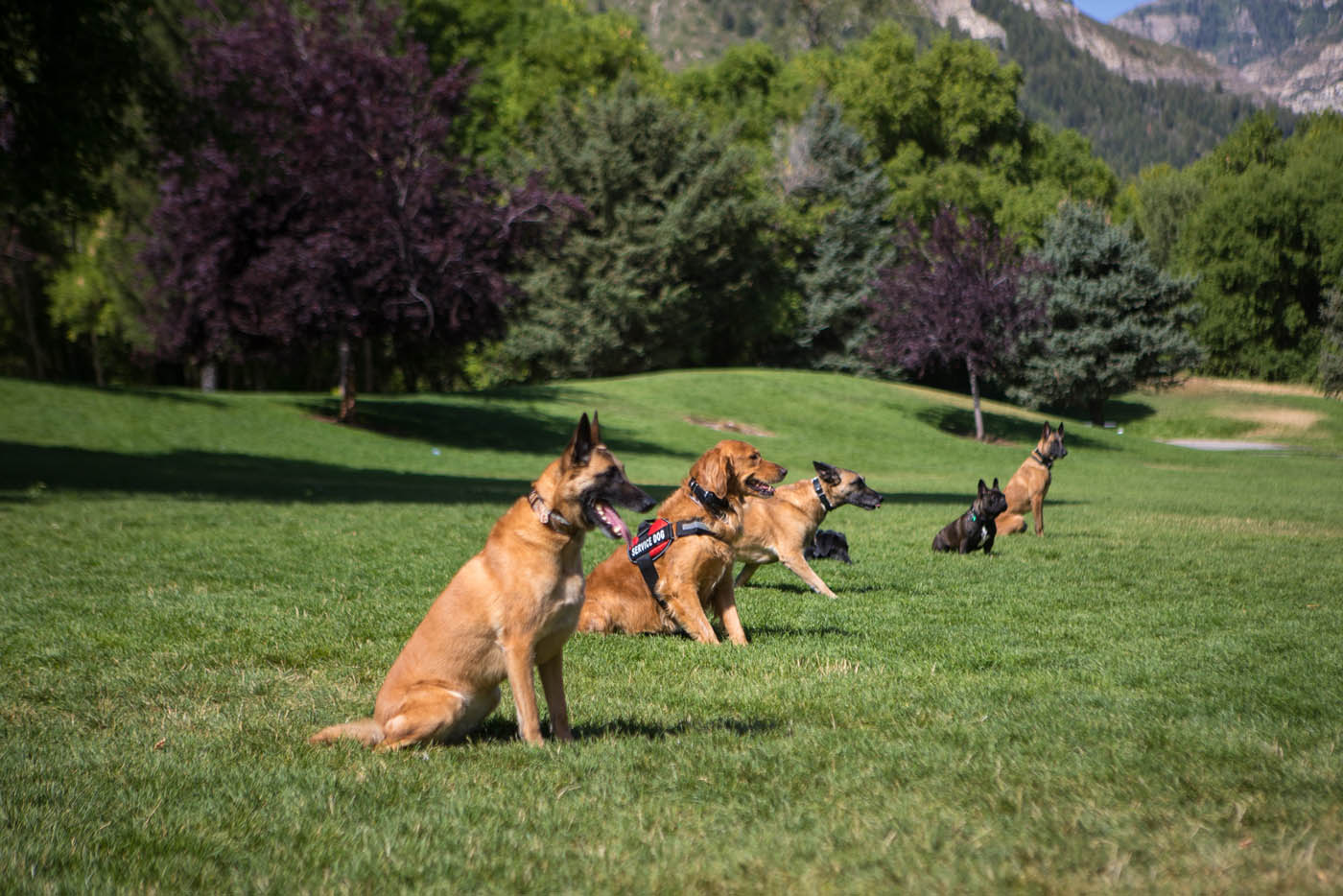How Dog Training Builds Trust and Confidence in Your Dog
How Dog Training Builds Trust and Confidence in Your Dog
Blog Article
Top Pet Training Techniques Every Proprietor Need To Know

Favorable Support Strategies
Making use of favorable support methods is crucial for reliable canine training, as it promotes a relying on bond between the instructor and the pet dog. This approach focuses on gratifying desirable habits as opposed to punishing undesirable ones, producing a setting for finding out. Benefits can consist of deals with, appreciation, or playtime, which encourage canines to repeat the habits that gain them these rewards.

In addition, this strategy enhances the dog's excitement for training sessions. They are more engaged and receptive when dogs connect training with favorable experiences. Dog training. Beyond instant behavior modification, positive support urges a collaborative relationship in between the dog and trainer, lowering stress and anxiety and fear
To make the most of performance, it is important to deliver benefits quickly, guaranteeing the canine attaches the actions with the support. Essentially, positive support strategies not just produce better-trained pets but likewise promote a harmonious partnership between canine and proprietor.
Clicker Training Approach
The remote control training approach is an extremely effective strategy that builds upon the principles of favorable reinforcement by adding a distinctive audio to mark desired behaviors. This method utilizes a small handheld tool that generates a clicking noise, allowing trainers to communicate with their canines in a prompt and clear way. When a pet dog carries out an actions that the proprietor wants to urge, the remote control is activated, complied with by a benefit, usually in the form of treats or praise.
The key to effective remote control training depends on uniformity and timing. It is critical to click at the exact moment the wanted behavior takes place, making sure that the dog links the audio with the activity and the succeeding incentive. This technique not just boosts communication but also fosters a more powerful bond in between the pet and the owner, as it urges involvement and communication during training sessions.
Clicker training can be applied to a selection of commands and habits, from standard obedience to much more complicated techniques. Its adaptability and effectiveness make it a popular technique among expert instructors and animal owners alike, leading the way for a receptive and well-trained canine buddy.
Chain Training Basics
Effective leash training is important for ensuring a satisfying and safe walking experience for both pets and their proprietors. A flat collar may function for some canines, while others might benefit from a harness that lowers pulling.
Present your canine to the chain gradually, enabling them to explore it in a comfy environment. This involves satisfying your dog for strolling close to browse around this web-site you instead than drawing ahead.
If your pet starts to pull, stop strolling quickly. In addition, practice various walking atmospheres to assist your canine adjust to diversions.
Normal practice will certainly strengthen your pet's understanding of leash rules. Keep in mind that leash training is an ongoing process; persistence and consistency will produce the very best results, promoting a favorable experience for both you and your canine companion.
Socializing Approaches
Socialization is a critical aspect of pet dog training that must preferably begin during puppyhood but can be advantageous at any type of age. Efficient socialization assists pets establish confidence and lowers the possibility of behavior problems. To carry out successful socialization approaches, expose your canine to a selection of atmospheres, people, and various other animals.
Start with regulated settings, such as pup courses or organized playgroups, where young canines can interact safely. Progressively introduce your dog to new experiences, consisting of different sounds, surface areas, and activities. Ensure these encounters are positive and rewarding to establish a sense of protection.
For grown-up pet dogs or those lacking direct exposure, begin with low-stress situations. Short, positive communications with friendly human beings and calm pets can develop favorable associations. Use treats and appreciation to reinforce desirable habits throughout these experiences.

Uniformity and Persistence
Identifying the relevance of consistency and perseverance in pet training is crucial for accomplishing lasting outcomes. Irregular training can lead to confusion, making it difficult for the pet to understand commands or behaviors, ultimately impeding progression.
Pet dogs, like people, find out at their very own rate. This promotes a relying on partnership in between the pet and proprietor, encouraging an extra enthusiastic and ready student.
To cultivate consistency and perseverance, establish a normal training regular, make use of the exact same commands, and make certain that all household participants apply the same training concepts - Dog training. By doing so, you produce a secure atmosphere for learning, enabling your pet to prosper and establish into a mannerly Continued companion
Conclusion
To conclude, reliable canine training methods, such as favorable support, clicker training, and appropriate chain training, are necessary for fostering a healthy and balanced owner-dog partnership. Additionally, carrying out socialization strategies and keeping consistency and persistence throughout the training process adds considerably to a dog's total wellness. By integrating these approaches, canine owners can promote the development of well-adjusted, loyal pet dogs, inevitably improving the lifestyle for both the proprietor and the pet.
Among the most famous techniques are positive reinforcement, remote control training, and leash training, each offering one-of-a-kind advantages that add to a mannerly dog. As we discover these essential approaches, it ends a knockout post up being apparent that grasping their subtleties can dramatically affect the training experience and the pet's general behavior.Using positive reinforcement methods is necessary for effective pet dog training, as it promotes a trusting bond between the canine and the instructor.In final thought, effective pet dog training methods, such as positive reinforcement, remote control training, and proper chain training, are necessary for fostering a healthy owner-dog partnership. By incorporating these techniques, dog owners can help with the advancement of well-adjusted, obedient family pets, eventually enhancing the quality of life for both the owner and the canine.
Report this page